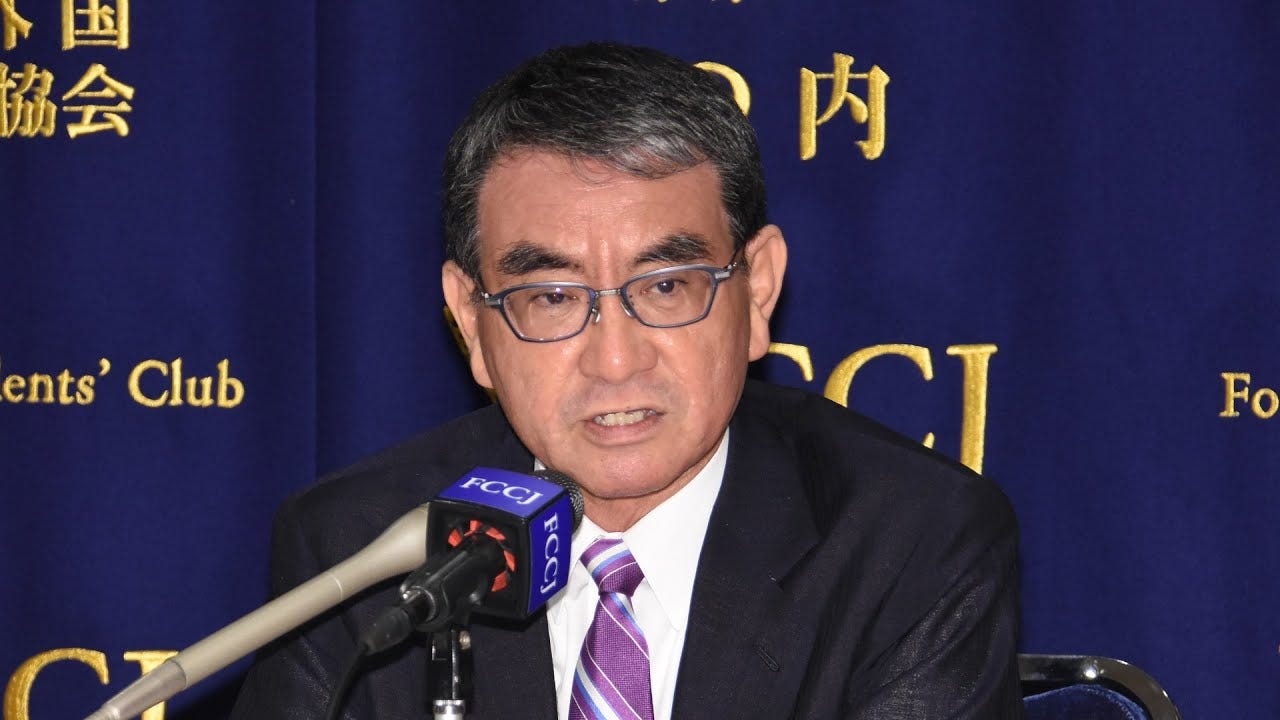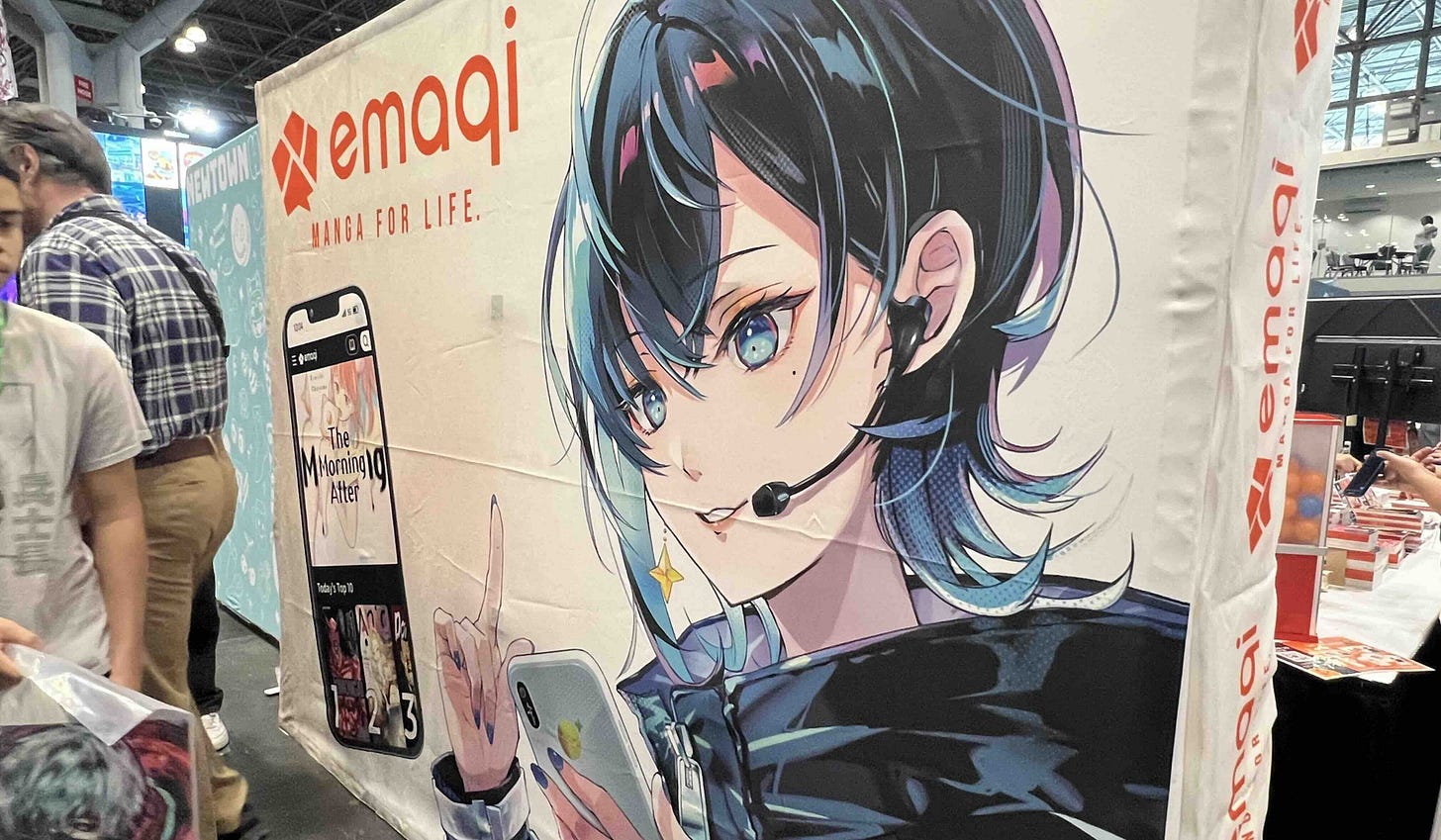PM hopeful pushes anime worker protections
Plus: AI translation startup launches North American digital manga store; and more
This is your weekly Animenomics briefing, covering the business of anime and manga. Today is Wednesday, September 11, 2024.
In case you missed it: Sony is looking to take advantage of its experience with the PlayStation Network to improve engagement with Crunchyroll subscribers, chief financial officer Hiroki Totoki told the Financial Times.
Kono: Industry must elevate social status of animators

Japan’s popular digital minister Taro Kono, who is vying for his party’s leadership and to become the country’s next prime minister, says any effort to grow Japanese soft power abroad using film and anime should not be led by the government.
Why it matters: Kono’s comments, made during a press conference at the Foreign Correspondents’ Club of Japan, echo long-standing concerns that the country’s Cool Japan policies are costly and ineffective.
Catch up quick: Kono, a political maverick who is popular on social media, is one of ten individuals seeking to replace Prime Minister Fumio Kishida as the leader of Japan’s ruling Liberal Democratic Party.
What he’s saying: “I believe we need a good individual who can lead the industry and make decisions,” Kono told the gathering of foreign journalists on Monday.
He points to sports and business executive Peter Ueberroth, who successfully organized the 1984 Los Angeles Olympics, as an example of such a figure.
Kono also criticized the film industry’s production committee system, “where no one is responsible and everyone has to agree to do anything”.
Zoom in: In the anime industry, Kono believes more needs to be done to elevate the reputation of animators in Japanese society in order to solve the labor crisis.
“We need to show them they are successful, they are making money, and they have social status, so young people want to go into that field,” he said.
Douglas Montgomery, who leads entertainment consultancy Global Connects Media, says this is the first time he has heard a politician address animators’ social status.
“The social status of entertainers in Japan is low. Top graduates still go to Mitsui or Sumitomo. If they choose entertainment, they get looked down on,” Montgomery told Animenomics.
The bigger picture: Kishida’s government said in June that it wants to quadruple the overseas market of anime, video games, and other creative industries under a new Cool Japan strategy.
The prime minister convened on Monday the first meeting of a public–private council to improve working conditions in the film and broader entertainment industry.
Clippings: Digital manga store opens with AI translation

AI translation startup Orange has launched its Emaqi digital manga store in the United States and Canada. The company is also translating one-shot manga from Shonen Jump+ to be published in Shueisha’s MANGA PLUS app. (Press release)
Between the lines: In an interview with The Beat, Orange vice president of product Rei Kuroda explains that while AI is used throughout the translation workflow, human editors make the final decisions on translations.
Japan’s adult manga retailers are coming under increased pressure from global credit card processing companies to stop selling sexually explicit works, sparking fears that restrictions could go beyond sexual content. (Nikkei Asia)
NTT Solmare’s Comic Cmoa, one of Japan’s largest e-book platforms, reported ¥81.2 billion (US$574 million) in revenue for the most recent fiscal year ending in March, the first time the company released figures for the platform. (Oricon News)
Anime planning companies Twin Engine and Straight Edge are launching the Aniseka Novel Award in collaboration with more than a dozen anime studios with the premise of identifying light novels that can be adapted into anime. (Animation Business Journal)
Tokyo Metropolitan Government plans to stop applying “unhealthy” labels to a number of manga titles that depict sex between males and incest. It will instead label them “books under the provisions of Article 8”, specifying the a clause in the prefectural law that governs such publications. (The Yomiuri Shimbun)
Rewind: The Japan Cartoonists Association had lobbied that the “unhealthy” label creates stigma for the artists who create such works, which are already restricted from being sold to minors.
Animenomics is an independently-run and reader-supported publication. If you enjoyed this newsletter, consider sharing it with others.



“Artists” who create artwork for manga that celebrate incest and paedophilia deserve to be stigmatised. Referencing some monster legal article is simply not good enough. It’s absolutely wrong to publish, print and retail these types of works. The fact these “artists” even have a voice to lobby government is really fucking bizarre. Gross. 🤮
Who might be qualified as a candidate for the kind of internationally recognized leader suggested by Kono?